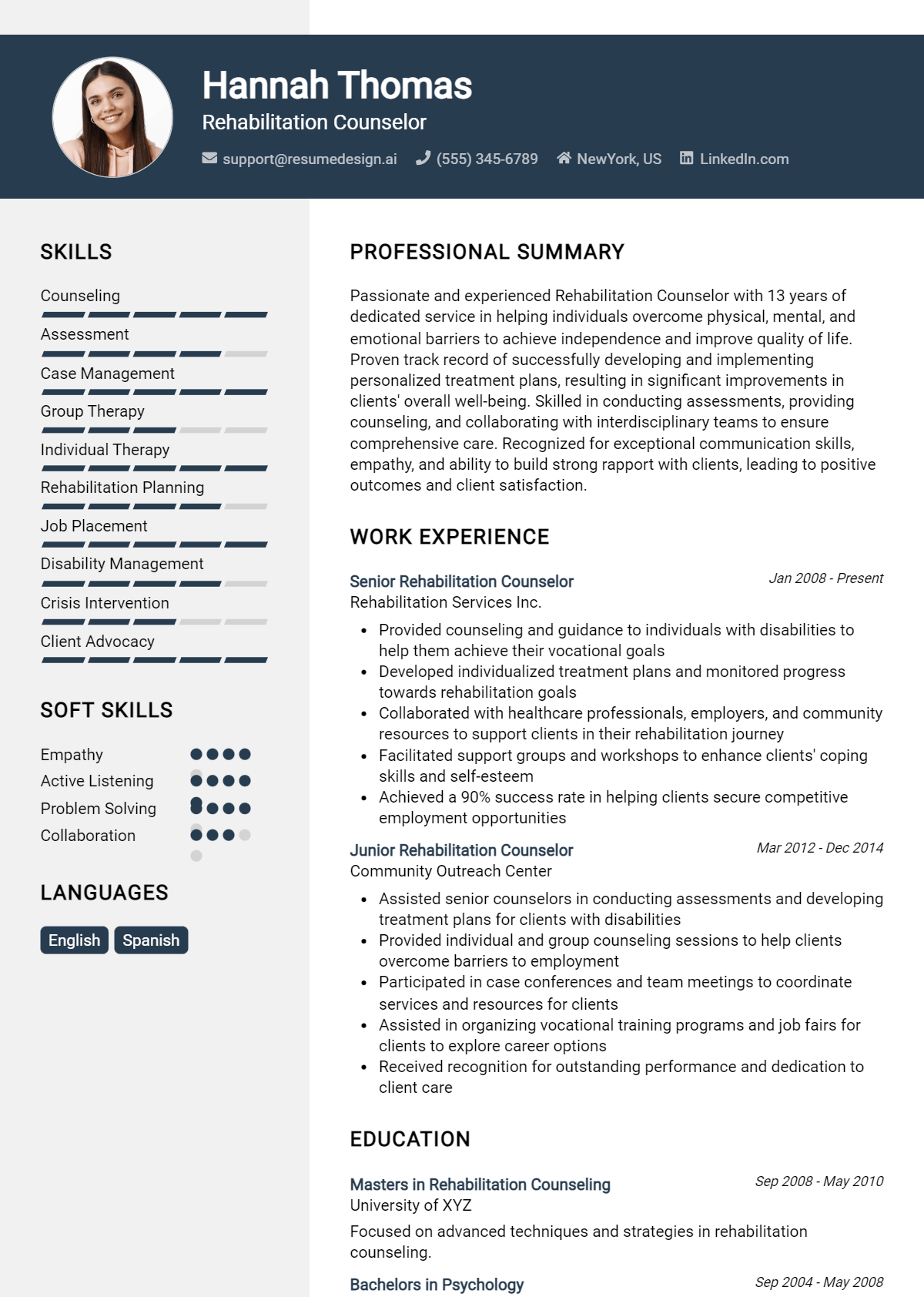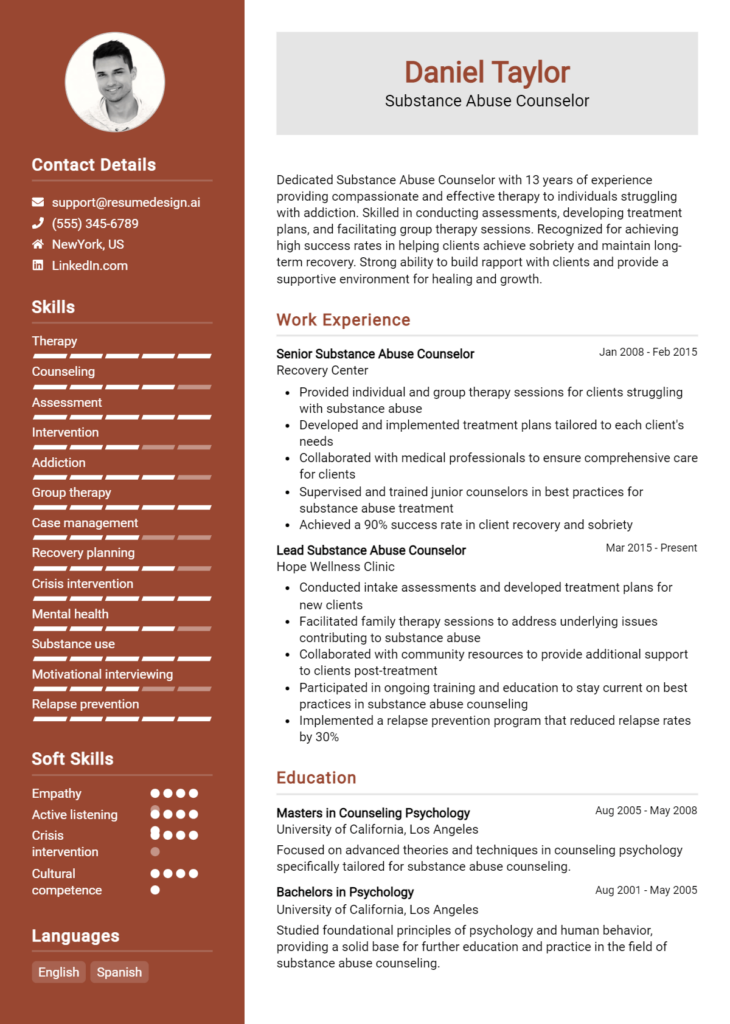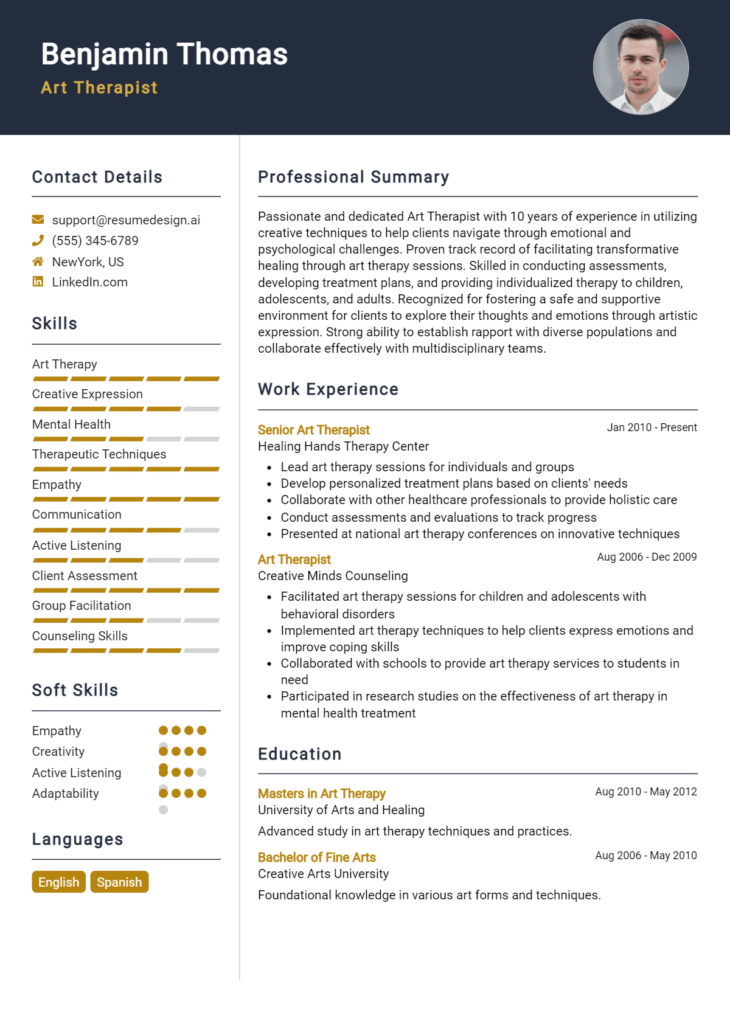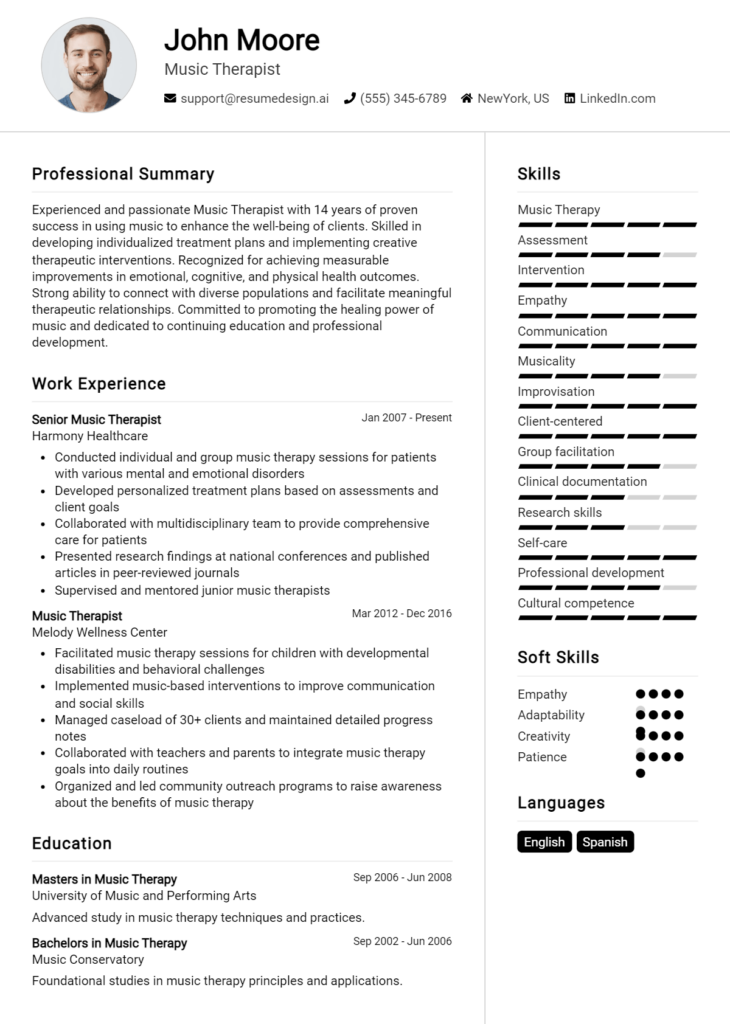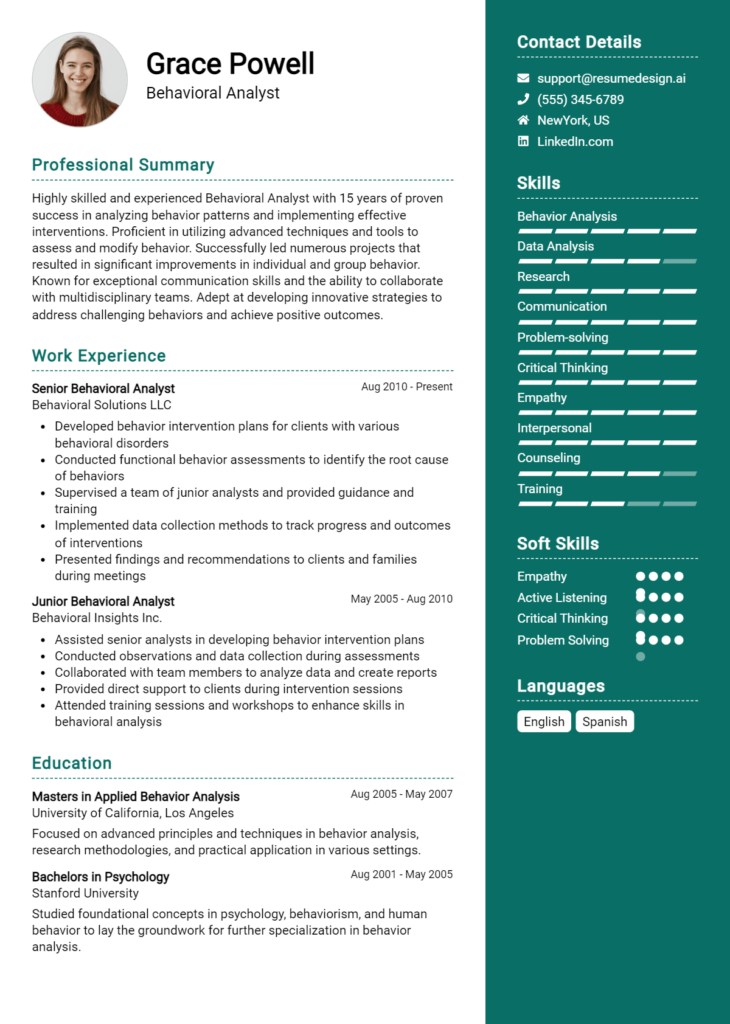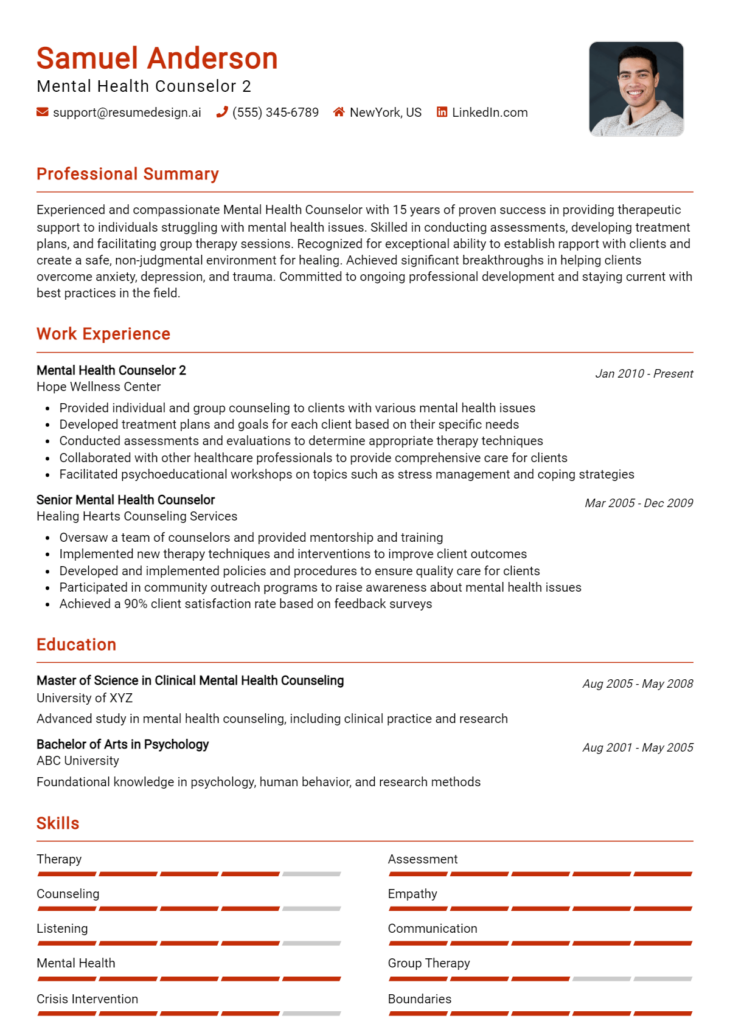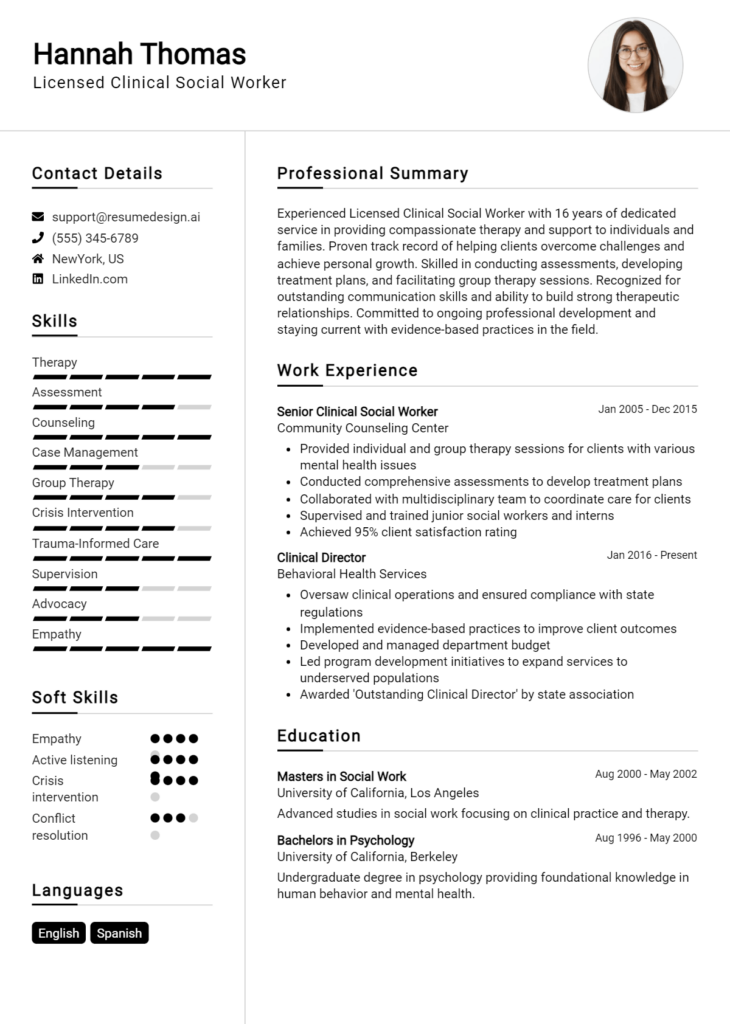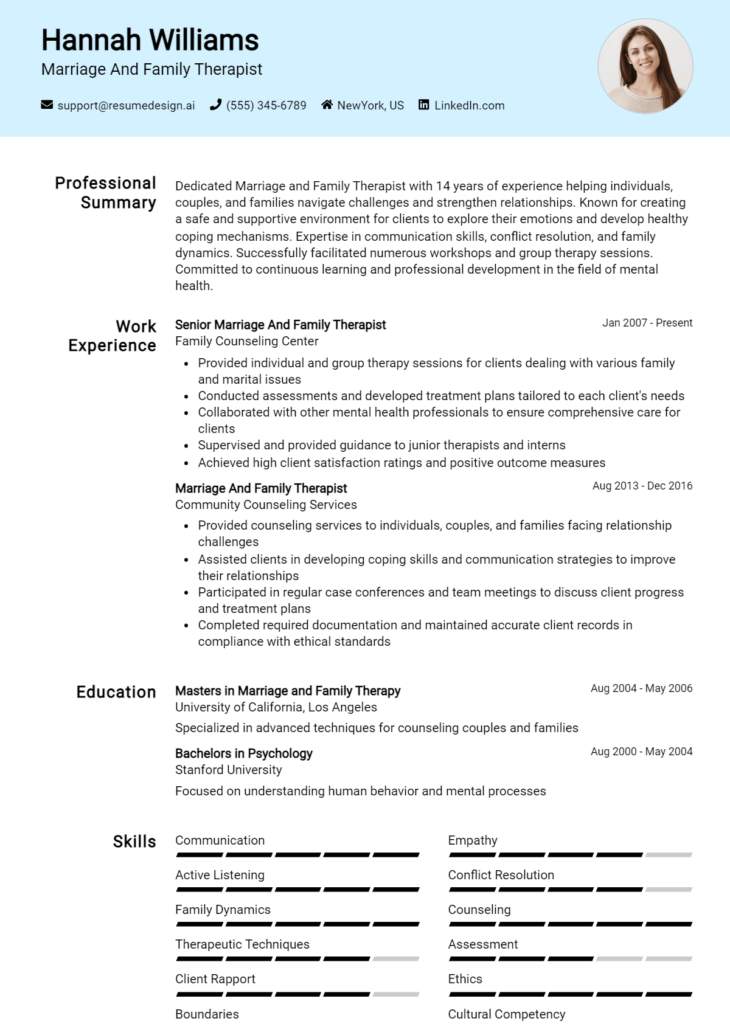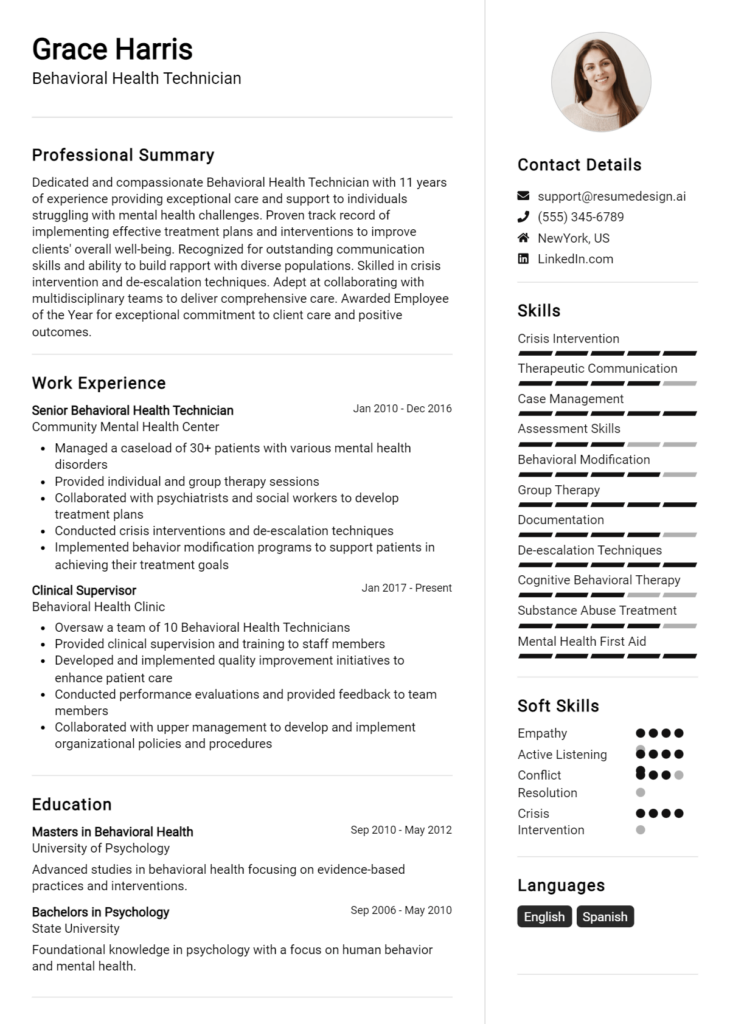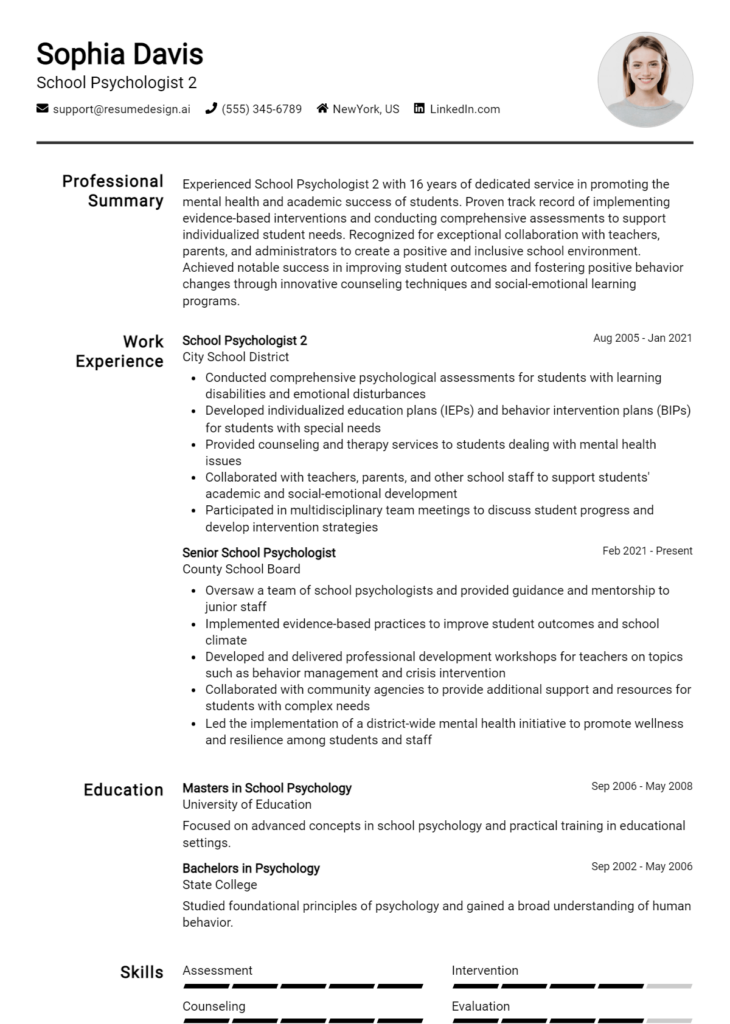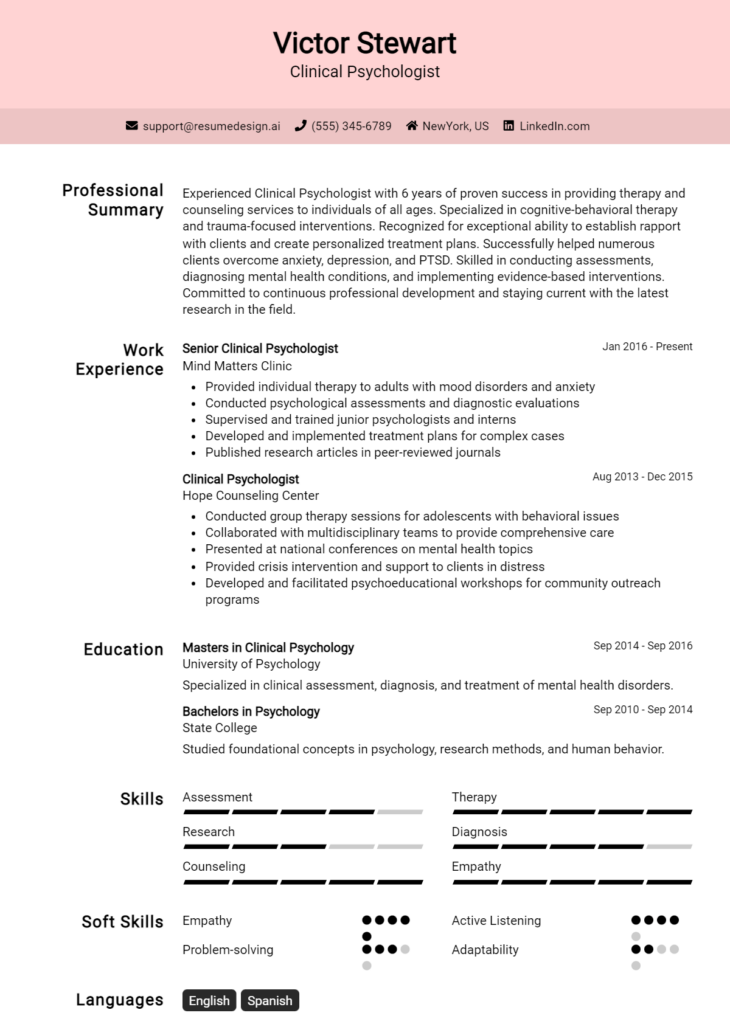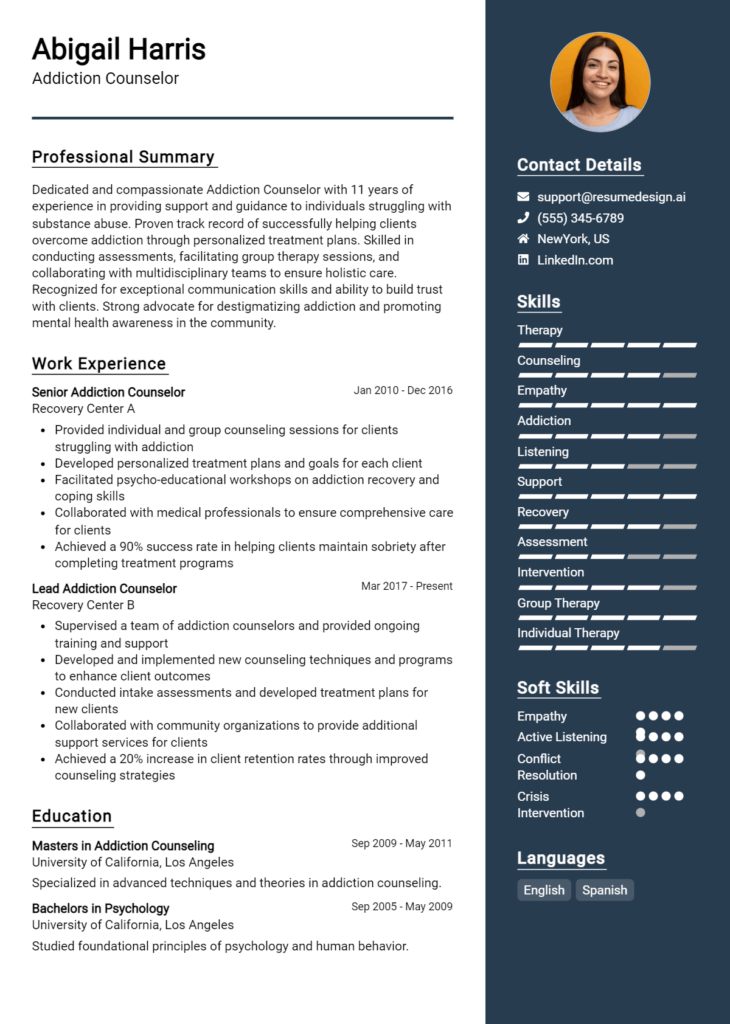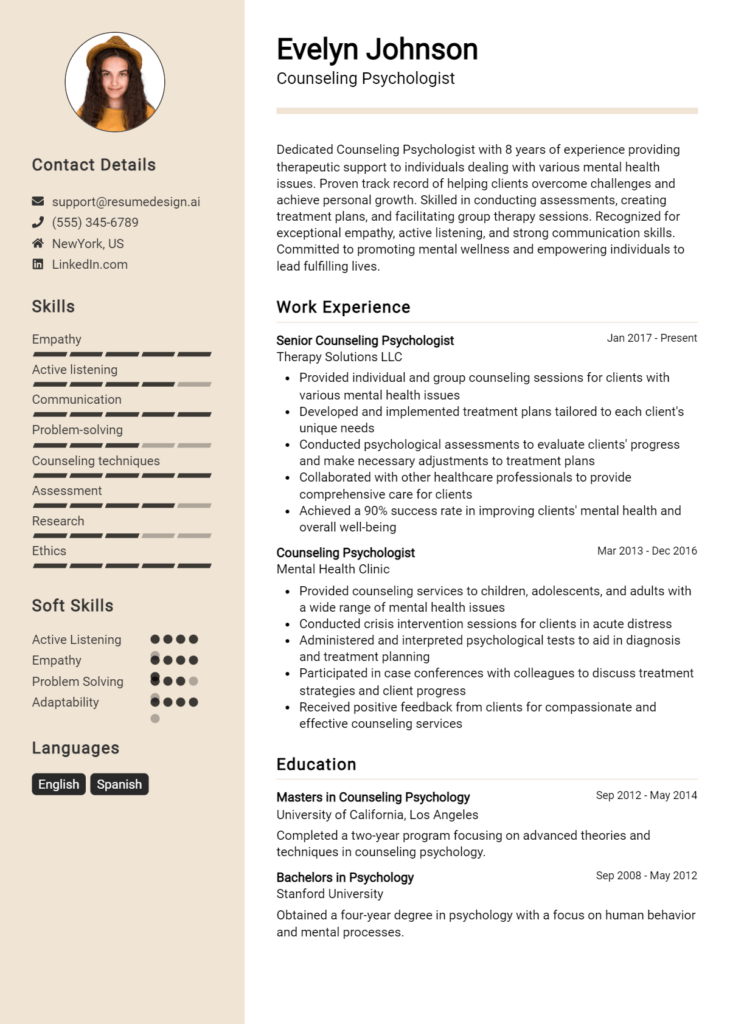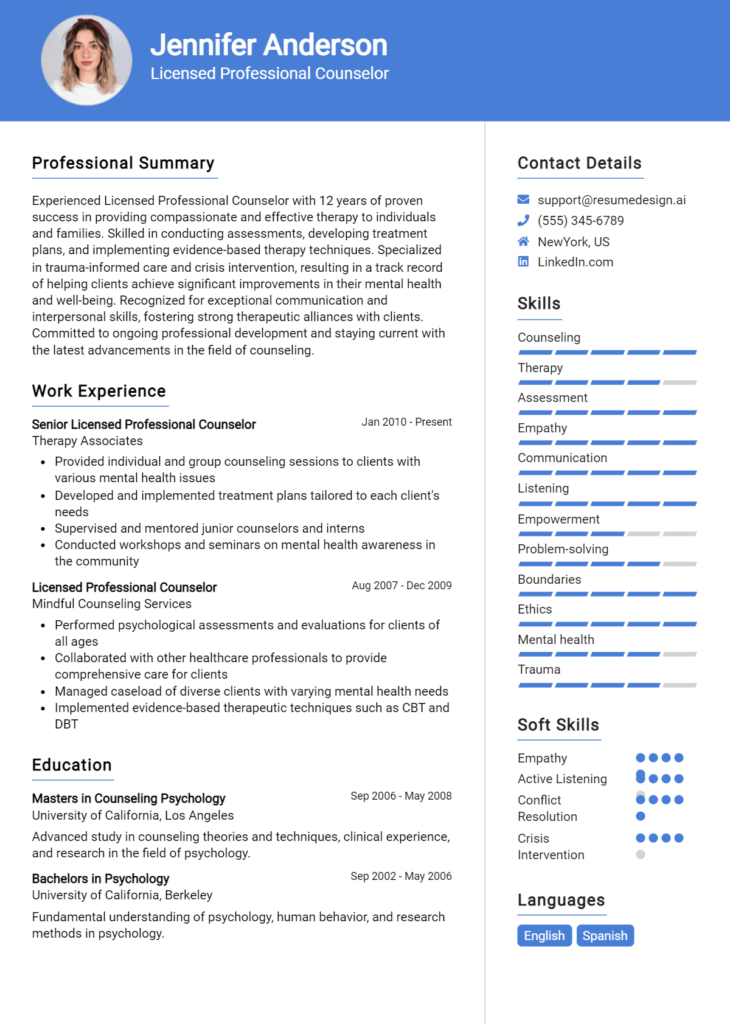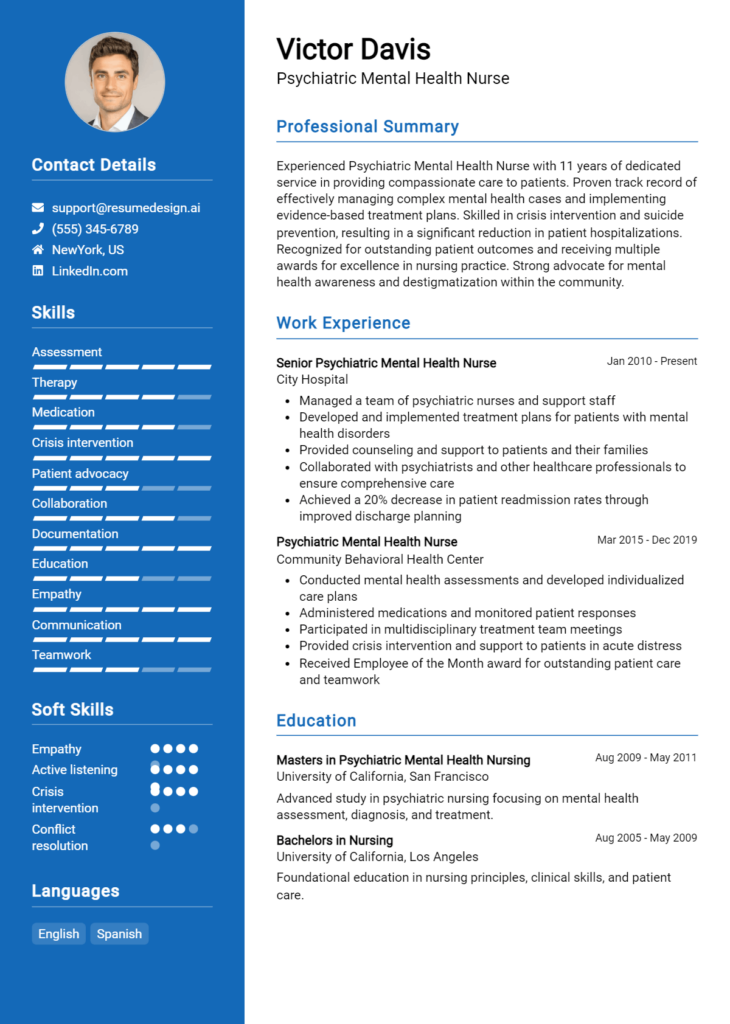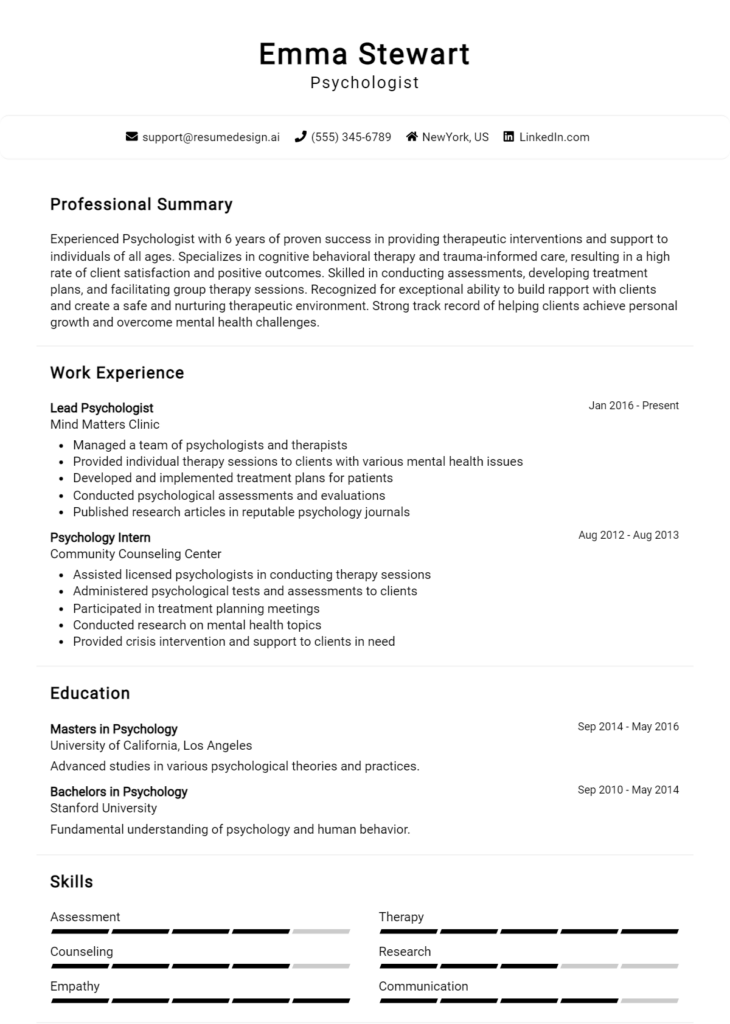Rehabilitation Counselor Core Responsibilities
Rehabilitation Counselors play a crucial role in aiding individuals with disabilities or challenges to achieve their personal and professional goals. They assess clients' needs, develop tailored rehabilitation plans, and collaborate with medical professionals and employers to ensure effective support. Essential skills include strong communication, empathy, and problem-solving abilities, coupled with technical knowledge in counseling techniques. These competencies enhance organizational goals by fostering client independence and success. A well-structured resume effectively highlights these qualifications, showcasing the candidate's potential to bridge various functions within an organization.
Common Responsibilities Listed on Rehabilitation Counselor Resume
- Assess clients' abilities, needs, and interests through interviews and evaluations
- Develop and implement personalized rehabilitation plans
- Provide counseling and support to clients throughout their rehabilitation journey
- Collaborate with healthcare providers, employers, and community resources
- Monitor clients' progress and adjust plans as necessary
- Advocate for clients' rights and access to services
- Maintain accurate records and documentation of treatment plans
- Educate clients about available resources and vocational training
- Conduct workshops and training sessions for skill development
- Stay updated on industry trends and changes in rehabilitation practices
High-Level Resume Tips for Rehabilitation Counselor Professionals
In the competitive field of rehabilitation counseling, a well-crafted resume is essential for making a lasting first impression on potential employers. Your resume serves as your personal marketing tool, showcasing not only your skills and qualifications but also your achievements and unique contributions to the field. As hiring managers often sift through numerous applications, a standout resume can make the difference between landing an interview and being overlooked. This guide will provide practical and actionable resume tips specifically tailored for Rehabilitation Counselor professionals, empowering you to highlight your strengths and elevate your candidacy.
Top Resume Tips for Rehabilitation Counselor Professionals
- Tailor your resume to the job description by incorporating keywords and phrases from the posting that match your skills and experience.
- Highlight relevant experience, including internships, volunteer work, and any specialized training in rehabilitation counseling.
- Quantify your achievements by using metrics and specific examples to demonstrate the impact of your work, such as the number of clients successfully rehabilitated or programs developed.
- Showcase industry-specific skills, such as knowledge of therapeutic techniques, case management, and familiarity with assessment tools.
- Include certifications and licenses relevant to rehabilitation counseling to validate your qualifications and expertise.
- Utilize a clean and professional format that enhances readability and allows key information to stand out.
- Craft a compelling summary statement that encapsulates your experience and passion for helping individuals achieve their rehabilitation goals.
- Incorporate continuing education and professional development courses that demonstrate your commitment to staying current in the field.
- Use action verbs to convey your responsibilities and accomplishments, making your contributions more impactful.
By implementing these tips, you can significantly enhance your resume's effectiveness and increase your chances of landing a job in the Rehabilitation Counselor field. A targeted and polished resume not only showcases your qualifications but also reflects your dedication to helping others, setting you apart in a crowded job market.
Why Resume Headlines & Titles are Important for Rehabilitation Counselor
In the competitive field of rehabilitation counseling, a well-crafted resume headline or title serves as a vital first impression. It encapsulates a candidate's key qualifications and areas of expertise in a concise phrase, allowing hiring managers to quickly assess the relevance of the applicant. A strong headline can immediately grab attention, set the tone for the resume, and encourage further reading. By ensuring that the headline is relevant and directly tied to the job being applied for, candidates can effectively position themselves as strong contenders for the role.
Best Practices for Crafting Resume Headlines for Rehabilitation Counselor
- Keep it concise: Aim for a headline that is brief yet informative, ideally 5-10 words.
- Be role-specific: Tailor your headline to reflect the specific position of Rehabilitation Counselor.
- Highlight key strengths: Include your most relevant skills or accomplishments that align with the job description.
- Use active language: Employ strong verbs or adjectives to convey your capabilities confidently.
- Avoid jargon: Ensure the language is accessible and easily understood by all hiring managers.
- Incorporate keywords: Use industry-specific terms that are likely to resonate with employers and pass through applicant tracking systems.
- Showcase your value: Highlight what makes you a unique and valuable candidate for the position.
- Revise for clarity: Edit your headline for clarity and impact, ensuring it leaves a strong impression.
Example Resume Headlines for Rehabilitation Counselor
Strong Resume Headlines
Compassionate Rehabilitation Counselor with 5+ Years of Experience in Client-Centered Care
Certified Rehabilitation Counselor Specializing in Vocational Rehabilitation and Mental Health Support
Results-Driven Rehabilitation Expert with Proven Success in Rehabilitation Program Development
Innovative Rehabilitation Counselor Committed to Empowering Individuals with Disabilities
Weak Resume Headlines
Job Seeker Looking for Opportunities
Rehabilitation Counselor with Experience
Professional in the Counseling Field
Strong headlines are effective because they are specific, highlight key qualifications, and convey a sense of confidence and professionalism. They communicate the candidate's expertise in a way that is likely to resonate with hiring managers. In contrast, weak headlines fail to impress as they are vague, lack specificity, and do not provide any insight into the candidate's unique strengths or suitability for the role. This can result in missed opportunities, as generic titles do not capture the attention of potential employers.
Writing an Exceptional Rehabilitation Counselor Resume Summary
A well-crafted resume summary is crucial for a Rehabilitation Counselor as it serves as the first impression to hiring managers. A strong summary quickly captures attention by succinctly highlighting key skills, relevant experience, and notable accomplishments that align with the specific job role. It should be concise yet impactful, providing a snapshot that emphasizes the candidate's unique qualifications, ultimately encouraging the reader to delve deeper into the resume.
Best Practices for Writing a Rehabilitation Counselor Resume Summary
- Quantify achievements: Use specific numbers or percentages to illustrate the impact of your work.
- Focus on relevant skills: Highlight the skills that are most pertinent to the Rehabilitation Counselor position.
- Tailor the summary: Customize your summary for each job application to reflect the specific requirements of the job description.
- Use action verbs: Start sentences with strong action verbs to convey confidence and proactivity.
- Keep it concise: Aim for 3-5 sentences that deliver maximum information in a brief format.
- Showcase your passion: Express your commitment to helping clients overcome challenges and achieve their goals.
- Include relevant certifications: Mention any licenses or certifications that enhance your qualifications as a Rehabilitation Counselor.
- Highlight collaborative skills: Emphasize your ability to work effectively with other professionals in a multidisciplinary environment.
Example Rehabilitation Counselor Resume Summaries
Strong Resume Summaries
Dedicated Rehabilitation Counselor with over 7 years of experience in facilitating recovery programs for individuals with disabilities, achieving a 90% success rate in client reintegration into the workforce. Skilled in developing personalized rehabilitation plans and collaborating with multidisciplinary teams to ensure comprehensive care.
Compassionate and results-driven Rehabilitation Counselor with a proven track record of improving client outcomes by 30% through tailored support strategies. Expertise in conducting assessments, providing counseling, and connecting clients with community resources to foster independence and success.
Licensed Rehabilitation Counselor with 5+ years of experience providing vocational rehabilitation services. Successfully placed over 100 clients into sustainable employment by leveraging strong relationships with local businesses and utilizing effective job coaching techniques.
Weak Resume Summaries
Rehabilitation Counselor with experience in helping people. I am good at communication and enjoy working with clients.
Experienced professional seeking a position as a Rehabilitation Counselor. I have worked in various roles and am passionate about helping others.
The strong resume summaries are considered effective because they provide specific details about the candidate's experience, highlight quantifiable achievements, and demonstrate a clear connection to the role. In contrast, the weak summaries lack concrete examples, are overly generic, and do not showcase the candidate's unique qualifications or impact, making them less compelling to potential employers.
Work Experience Section for Rehabilitation Counselor Resume
The work experience section of a Rehabilitation Counselor resume is crucial for demonstrating the candidate's professional journey and showcasing their technical skills, leadership abilities, and capacity for delivering high-quality outcomes. This section provides a platform for candidates to illustrate their hands-on experience in rehabilitation settings, highlighting how they manage teams and collaborate effectively with various stakeholders. Quantifying achievements—such as the number of clients successfully rehabilitated or the percentage of improved outcomes—helps to align the candidate's experiences with industry standards, making their application more compelling and relevant to potential employers.
Best Practices for Rehabilitation Counselor Work Experience
- Focus on relevant technical skills specific to rehabilitation counseling, such as assessment techniques and therapeutic interventions.
- Quantify achievements with specific metrics, such as client success rates, rehabilitation timelines, or program participation growth.
- Highlight leadership roles, showcasing experience in managing multidisciplinary teams and coordinating care plans.
- Emphasize collaboration with healthcare professionals, social services, and community organizations to enhance client support.
- Use action verbs to describe responsibilities and accomplishments, creating a dynamic and engaging narrative.
- Tailor the work experience section to align with the job description, using relevant terminology and competencies.
- Include continuing education and professional development activities that enhance technical expertise and industry knowledge.
- Maintain clarity and conciseness in descriptions to ensure readability and impact.
Example Work Experiences for Rehabilitation Counselor
Strong Experiences
- Successfully developed and implemented a new rehabilitation program that increased client retention rates by 30% over one year.
- Led a team of five counselors in providing individualized treatment plans, resulting in an average client satisfaction score of 95% in post-rehabilitation surveys.
- Collaborated with local employers to create job placement opportunities for clients, achieving a 40% increase in successful job placements within six months.
- Implemented evidence-based practices that improved rehabilitation outcomes, evidenced by a 25% reduction in the average recovery time for clients.
Weak Experiences
- Helped clients with various issues.
- Participated in team meetings to discuss client progress.
- Assisted in developing programs for rehabilitation.
- Worked with other professionals occasionally.
The examples labeled as strong demonstrate clear, quantifiable outcomes and specific achievements, reflecting a candidate's technical leadership and collaboration skills. These statements provide concrete evidence of the candidate's effectiveness and contributions to the field of rehabilitation counseling. Conversely, the weak experiences lack detail, specificity, and measurable results, making them less impactful and failing to convey the candidate's true capabilities and accomplishments in the role.
Education and Certifications Section for Rehabilitation Counselor Resume
The education and certifications section of a Rehabilitation Counselor resume is vital in establishing the candidate's qualifications and expertise in the field. This section serves to highlight the academic background, specialized training, and industry-relevant certifications that are essential for effective rehabilitation counseling. By providing details on relevant coursework, recognized certifications, and ongoing professional development, candidates can significantly enhance their credibility and demonstrate their commitment to continuous learning. This not only aligns them with the demands of the job role but also showcases their preparedness to tackle the challenges faced in rehabilitation counseling settings.
Best Practices for Rehabilitation Counselor Education and Certifications
- Include only relevant degrees and certifications that pertain directly to rehabilitation counseling.
- Specify the level of education (e.g., master's degree, doctoral degree) to highlight academic achievement.
- List certifications from recognized organizations, such as the Commission on Rehabilitation Counselor Certification (CRCC).
- Detail any specialized training or workshops attended that enhance skills applicable to the role.
- Include GPA if it is impressive (generally 3.5 or higher) to showcase academic excellence.
- Use a chronological format for education and certifications to provide clarity on progression.
- Highlight any continuing education courses or professional development to demonstrate a commitment to staying current in the field.
- Be specific about the coursework that is most relevant to rehabilitation counseling practices.
Example Education and Certifications for Rehabilitation Counselor
Strong Examples
- Master of Science in Rehabilitation Counseling, University of XYZ, 2020
- Certified Rehabilitation Counselor (CRC), Commission on Rehabilitation Counselor Certification, 2021
- Coursework in Mental Health Counseling and Disability Services, University of XYZ
- Completed a 30-hour workshop on Motivational Interviewing Techniques in Rehabilitation, 2022
Weak Examples
- Bachelor of Arts in Sociology, University of ABC, 2005 (not directly relevant)
- Certification in Basic First Aid, Red Cross, 2019 (not specialized enough for rehab counseling)
- Coursework in General Psychology, University of DEF, 2000 (outdated and not specific to rehabilitation)
- High School Diploma, Anytown High School, 2000 (too basic for professional roles)
The strong examples provided are considered relevant and impactful as they directly align with the qualifications and skills needed for a Rehabilitation Counselor position, showcasing advanced degrees, recognized certifications, and pertinent training. In contrast, the weak examples lack relevance to the field of rehabilitation counseling, either being outdated, overly general, or not specialized enough to enhance credibility in this specific area of practice.
Top Skills & Keywords for Rehabilitation Counselor Resume
As a Rehabilitation Counselor, showcasing the right skills on your resume is essential for demonstrating your capability to support individuals in overcoming personal, social, and vocational challenges. These skills not only highlight your qualifications but also reflect your understanding of the complexities involved in rehabilitation. Employers look for a balance of hard and soft skills that indicate not only your technical proficiency but also your ability to empathize, communicate, and motivate clients effectively. In an increasingly competitive job market, a well-crafted resume that emphasizes relevant skills can set you apart and enhance your chances of securing a position in this rewarding field.
Top Hard & Soft Skills for Rehabilitation Counselor
Soft Skills
- Empathy
- Active Listening
- Communication Skills
- Problem-Solving
- Patience
- Adaptability
- Interpersonal Skills
- Emotional Intelligence
- Time Management
- Conflict Resolution
- Motivational Skills
- Cultural Competence
- Team Collaboration
- Decision-Making
- Advocacy Skills
Hard Skills
- Knowledge of Rehabilitation Techniques
- Case Management
- Assessment and Evaluation
- Counseling Techniques
- Career Development Strategies
- Crisis Intervention
- Report Writing
- Knowledge of Disability Laws and Regulations
- Data Analysis
- Client Advocacy
- Treatment Planning
- Substance Abuse Counseling
- Psychosocial Rehabilitation
- Group Counseling Facilitation
- Job Placement Services
- Familiarity with Medical Terminology
- Computer Proficiency (e.g., MS Office, counseling software)
- Research Skills
For more detailed insights on showcasing your skills and work experience, explore skills and work experience sections to enhance your resume further.
Stand Out with a Winning Rehabilitation Counselor Cover Letter
As a dedicated and compassionate rehabilitation counselor with over five years of experience in assisting individuals to overcome physical, emotional, and social challenges, I am excited to apply for the Rehabilitation Counselor position at [Company Name]. My background in psychology and hands-on experience in various rehabilitation settings have equipped me with the skills to create personalized recovery plans that empower clients towards achieving their goals. I am particularly drawn to your organization’s commitment to holistic care and its emphasis on community involvement, and I believe my values align closely with your mission.
Throughout my career, I have successfully collaborated with multidisciplinary teams to assess clients' needs and develop effective rehabilitation strategies. My expertise lies in facilitating vocational assessments, providing counseling services, and advocating for resources that support clients’ reintegration into society. At my previous position with [Previous Company Name], I implemented a new client tracking system that improved follow-up and increased engagement by 40%, highlighting my ability to leverage technology for enhanced service delivery. I am confident that my innovative approach and strong communication skills will be an asset to your team.
In addition to my professional skills, I bring a deep sense of empathy and cultural competence that allows me to connect with clients from diverse backgrounds. I understand that each individual’s journey is unique, and I am committed to fostering an environment of trust and respect. I am eager to engage in ongoing professional development and stay abreast of the latest trends in rehabilitation counseling, ensuring that my practice is grounded in evidence-based methods. I am excited about the opportunity to contribute to [Company Name] and support clients in realizing their full potential.
Thank you for considering my application. I look forward to the possibility of discussing how my experience and passion for rehabilitation counseling can align with the goals of [Company Name]. I am eager to bring my dedication to client success and my commitment to excellence to your esteemed organization. Please feel free to contact me at [Your Phone Number] or [Your Email Address] to arrange a conversation.
Common Mistakes to Avoid in a Rehabilitation Counselor Resume
Crafting an effective resume as a Rehabilitation Counselor is crucial for standing out in a competitive job market. However, many candidates make common mistakes that can undermine their chances of securing an interview. Understanding these pitfalls can help you create a polished and professional resume that highlights your qualifications and experiences. Here are some common mistakes to avoid when writing your Rehabilitation Counselor resume:
Generic Objective Statements: Using a one-size-fits-all objective can make your application seem impersonal. Tailor your objective to reflect your specific interest in the position and organization.
Lack of Quantifiable Achievements: Failing to include measurable outcomes in your experience can weaken your resume. Use data and statistics to demonstrate your impact in previous roles, such as the number of clients successfully rehabilitated.
Overly Complex Language: Using jargon or convoluted language can confuse hiring managers. Aim for clear and concise language that effectively communicates your skills and experiences.
Ignoring Relevant Certifications: Rehabilitation counseling often requires specific certifications. Neglecting to highlight relevant credentials like CRC (Certified Rehabilitation Counselor) can lead to missed opportunities.
Inconsistent Formatting: A disorganized or inconsistent format can detract from your professionalism. Ensure uniformity in font, bullet points, and spacing throughout your resume.
Neglecting Soft Skills: While technical skills are essential, rehabilitation counseling also requires strong interpersonal skills. Failing to showcase abilities like empathy, communication, and problem-solving can be a significant oversight.
Lengthy Resumes: A resume that is too long can overwhelm hiring managers. Aim for one to two pages, focusing on the most relevant experiences and skills.
Typos and Grammatical Errors: Errors in your resume can create a negative impression and suggest a lack of attention to detail. Always proofread your resume or have someone else review it before submission.
Conclusion
As a Rehabilitation Counselor, you play a vital role in helping individuals overcome physical, emotional, and mental challenges to achieve their personal and professional goals. Throughout this article, we've highlighted the essential skills and qualifications necessary for success in this field, including strong communication abilities, empathy, problem-solving skills, and a deep understanding of various rehabilitation techniques.
We also discussed the importance of tailoring your resume to showcase your unique experiences and qualifications effectively. A well-crafted resume can make a significant difference in standing out to potential employers.
Now is the perfect time to review your Rehabilitation Counselor resume and ensure it reflects your skills and experiences accurately. To assist you in this process, consider utilizing the available resources:
- Explore resume templates to find a design that suits your style.
- Use the resume builder for a user-friendly way to create a professional-looking resume.
- Check out resume examples for inspiration and ideas on how to present your qualifications effectively.
- Don't forget to craft a compelling cover letter using cover letter templates that can complement your resume and strengthen your application.
Take action today to enhance your resume and increase your chances of landing that desired Rehabilitation Counselor position!

